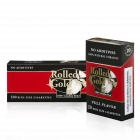The Role of Celebrity and Influencer Endorsements
In the age of celebrity culture and influencer-driven narratives, public figures in Canada wielding significant influence often transcend their personal choices, inadvertently turning them into potent endorsements. When such an individual is seen with a cigarette or is associated with a particular tobacco brand, it echoes beyond mere personal preference. This association becomes a tacit recommendation, molding public sentiment and potentially swaying purchasing decisions. The intertwining of tobacco with celebrity and influencer endorsements is a nuanced realm, reflecting not only marketing strategies but also the broader societal impacts of fame and influence. As we navigate this complex intersection, it becomes vital to discern the profound effects these endorsements have on shaping behaviors, especially in a country as diverse and media-conscious as Canada.
Historical endorsements by celebrities in Canada
Hollywood's Influence on Canadian Trends
In the shimmering days of classic Hollywood, the imagery of icons like Marilyn Monroe and James Dean, elegantly holding a cigarette, was an emblem of style and allure. These glamorous figures not only set the tone in the entertainment world but also made significant impressions on the cultural fabric of their time. Their reach wasn't confined to the boundaries of Hollywood or the United States; it extended north, touching the hearts and minds of Canadians.
Being geographically close and culturally intertwined with the US, Canada often mirrored many of the trends emerging from the bustling world of Hollywood. As these film icons flaunted their smoking habits on and off the screen, Canada too saw a rise in the appeal of cigarettes. This phenomenon wasn't merely about emulating a trend; it was about adopting a symbol of sophistication and rebellion. Such was the profound impact of celebrity endorsements from the golden era on the Canadian populace.
Notable Canadian Celebrity Endorsements
Canada boasts a rich legacy of celebrated personalities whose influences have rippled not only through its national fabric but have also made notable impacts on the global stage. The likes of Wayne Gretzky, with his ice hockey prowess, and Celine Dion, with her soul-stirring vocals, are not just household names in Canada; they're global icons. Their actions, preferences, and endorsements, whether implicit or explicit, often hold significant sway over their legions of fans, especially in their home country.
Such significant influence means that even casual interactions of these celebrities with products or brands, like tobacco, don't go unnoticed. Over the years, there have been instances where some of these iconic figures have been captured, either in personal moments or public appearances, with tobacco products. While it may not always be a direct endorsement, such visuals often generate buzz and influence public perception. Given their massive fan base and the weight their actions hold, even unintended promotions can shape trends, attitudes, and behaviors, highlighting the intricate bond between celebrity actions and societal norms.
The current state of influencer marketing for tobacco and its regulations
The Rise of Social Media Influencers
The digital age has reshaped numerous facets of our daily lives, and one significant transformation has been the emergence of social media influencers. Platforms like Instagram and TikTok have become modern arenas where these influencers command vast audiences, often rivaling traditional celebrities in terms of their reach and influence. Their posts, stories, and videos, covering diverse aspects of their lives, touch upon everything from fashion and food to lifestyle choices. Among these, their choices regarding smoking and tobacco use don't go unnoticed. With every post, they have the potential to shape the perceptions and choices of their millions of followers, especially the younger demographic.
However, the world of influencer marketing is not always as transparent as it appears. While some influencers might share their genuine choices and preferences, the economic dynamics of the digital space mean that many of these posts are sponsored or paid for by brands. This muddies the waters significantly. The followers, especially the impressionable younger lot, might often find it challenging to discern between an influencer's authentic preferences and strategically placed product endorsements. The confluence of personal branding with commercial interests leads to an intricate web of implications, especially when it's related to products like tobacco, which have a direct bearing on public health.
In recognizing the immense sway these influencers hold over public perceptions, many countries and organizations are striving to implement stricter regulations. These regulatory frameworks aim to bring transparency to the realm of influencer marketing, especially concerning products with potential health risks. The emphasis is on ensuring clear disclosure of paid partnerships and highlighting the distinction between organic content and advertisements. The overarching goal is to ensure that audiences are not misled and that they can make informed decisions based on authentic and unbiased information. As the digital sphere continues its rapid evolution, the dialogue around influencer marketing, its ethics, and its implications remains more relevant than ever.
Regulatory Challenges and Adaptations
In the constantly evolving digital age, influencer marketing has emerged as a potent force, reshaping traditional advertising paradigms. This transformation hasn’t escaped the notice of the tobacco industry, which has seen its advertising methods significantly curtailed over the decades, especially in countries with stringent regulations like Canada. Navigating this new landscape, where influential personalities command the attention and trust of vast audiences, presents both challenges and opportunities for brands. For tobacco companies, the key lies in leveraging the power of influencers while ensuring adherence to the existing regulatory framework.
Canada’s approach to tobacco advertising has been characterized by its rigorous and comprehensive regulations. The nation has historically championed public health initiatives, resulting in a strict framework governing the promotion of tobacco products. The rules aim to minimize the allure of smoking, especially to younger demographics, by limiting overt and covert advertisements. In this matrix, influencers present an interesting challenge. Their endorsements, often perceived as personal choices rather than paid promotions, blur the lines between genuine content and advertising. While many influencers might genuinely share their experiences or preferences, the potential for paid partnerships muddies the waters, complicating regulatory oversight.
Given the nuances of influencer marketing, tobacco brands, and regulatory bodies alike find themselves in a delicate dance of adaptation. On one hand, brands seek creative avenues to present their products in ways that might skirt traditional advertising definitions or exploit grey areas in the regulations. On the other, authorities strive to update and refine their guidelines, ensuring they remain relevant in the face of changing promotional strategies. The landscape is dynamic, with influencers, brands, and regulators continually recalibrating their moves. As the influencer marketing frontier continues to evolve, it remains to be seen how the delicate balance between promotion and protection will shape the future of tobacco advertising in Canada.
The shift to non-traditional tobacco products in endorsements
Vaping and E-Cigarettes
As the tobacco industry undergoes significant evolution, so does its portrayal in the media and popular culture. Traditional native cigarettes, which once dominated the screens and held the emblematic torch of "cool," are now sharing that pedestal with newer entrants like vaping devices and e-cigarettes. This shift is not solely based on market dynamics or advancements in technology but is also deeply influenced by the changing landscape of endorsements. Today's influencers, spanning across various social media platforms, have taken to these modern alternatives, broadcasting them as more contemporary and aligned with today's lifestyle. Their reach is vast, and their messages, whether intentional or not, often highlight these products as seemingly 'safer' or more 'fashion-forward' choices compared to traditional smoking.
This new wave of endorsement, characterized by glitzy Instagram posts, YouTube reviews, and celebrity endorsements, often downplays the health implications and instead spotlights the aesthetic appeal or the so-called lifestyle benefits of vaping and e-cigarettes. Words like 'sleek,' 'modern,' or 'innovative' are commonly associated, reshaping the narrative around tobacco consumption. As these influencers wield enormous power over their audience's perceptions and choices, the portrayal of e-cigarettes and vapes as 'chic' or 'contemporary' creates a renewed intrigue, especially among younger audiences. This phenomenon is a testament to how endorsement strategies have adapted over the years, mirroring societal shifts and aligning with the pulse of the newer generation. The question remains, though: At what cost does this evolution come, especially when health and societal implications are weighed in the balance?
Organic and Herbal Smoking Alternatives
The landscape of product endorsements, especially in the tobacco sector, has observed a noticeable shift in recent years. Historically, celebrity endorsements often revolved around mainstream tobacco products, aiming to glamourize and amplify their appeal. However, as health and wellness become central themes in popular culture, the narrative is evolving. Not just consumers, but even endorsers — celebrities and influencers alike — are becoming increasingly discerning about the products they choose to associate with.
A prime example of this shift can be seen in the rising popularity of organic and herbal smoking alternatives. These products promise a less harmful experience compared to conventional tobacco offerings, making them more palatable to health-conscious individuals. Endorsers, many of whom are acutely aware of their influence on their vast follower bases, are now advocating for these alternative products. By endorsing organic and herbal options, they not only position themselves as more health-aware but also actively participate in reshaping consumer perceptions. This movement towards healthier choices isn't just a marketing gimmick. It represents a deeper societal transition where wellness is prioritized, and influencers play a role in steering the conversation. As they push these products into the mainstream, they challenge traditional norms and pave the way for a future where choices are not just about personal pleasure but also about holistic well-being. It's a testament to the changing times and the power of endorsements in shaping market dynamics.
The impact of endorsements on public perceptions and sales
The Power of FOMO (Fear of Missing Out)
In today's age of social media ubiquity, the line between advertising and lifestyle choices has blurred considerably. When a popular influencer or celebrity embraces a product, it's no longer seen merely as a commercial promotion. Instead, it becomes a testament to a particular lifestyle, a stamp of approval from someone many look up to. For ardent followers and fans, this endorsement becomes a siren call, beckoning them towards a world they aspire to be a part of.
This phenomenon goes beyond just the immediate appeal of the product. It taps into a deeper human emotion: the Fear of Missing Out (FOMO). In a world where every moment is captured and shared, nobody wants to feel left behind or out of the loop. So, when a cherished figure showcases a product, many rush to procure it, not just because they need it, but because it represents a piece of a world they wish to inhabit. This powerful dynamic has reshaped the landscape of marketing and sales, emphasizing the significance of relatable and aspirational figures in shaping public consumption habits.
Endorsements: Boost or Bust for Brands?
Endorsements, when harnessed correctly, wield the power to elevate a brand to unprecedented heights. By leveraging the popularity and trust associated with a celebrity or influencer, companies can create a resonant message that potentially drives their sales through the roof. The public often perceives products and brands through the prism of their endorsers; hence, a revered personality's stamp of approval can lend credibility, appeal, and a sense of aspirational value to the product. In essence, a well-executed endorsement acts as a potent tool in a brand's arsenal, capable of not only boosting visibility but also forging deeper connections with the target audience.
However, this powerful tool comes with its set of challenges, especially when it intersects with products that are ensnared in controversy or ethical debates, like tobacco. An endorsement misaligned with public sentiment or values can trigger significant backlash, turning potential boons into public relations nightmares. In such scenarios, rather than rallying support, the endorsement can erode trust, alienate consumers, and even tarnish the reputation of both the endorser and the brand. Consequently, brands must tread carefully, ensuring that their endorsement strategies are not only effective but also in tune with the evolving public consciousness and ethical considerations.
Conclusion
The realm of celebrity and influencer endorsements stands as a sprawling, ever-changing domain. From the historic sway of Hollywood to the contemporary might of social media icons, these endorsements have left an indelible mark on tobacco trends in Canada and will persist in doing so. The pages of history bear witness to the transformational effect of these endorsements, evolving alongside the times. Now, in the age of digital dominance, the influence is more potent than ever. The present and future of tobacco trends in Canada are intricately woven with the threads of celebrity endorsements, creating a narrative that captures the essence of an era. As we venture forth, the dynamic relationship between these influential figures and the tobacco landscape will continue to define and redefine the course of trends, etching new stories into the tapestry of Canada's tobacco journey.
FAQs
- Did any significant Canadian laws change the face of tobacco endorsements?
Yes, Canada's Tobacco Act and its advertising restrictions played a pivotal role in reshaping how tobacco products are endorsed. - Are all influencers paid for tobacco endorsements?
Not necessarily. While many receive compensation, some influencers might genuinely enjoy a product and share it without monetary incentives. - Is vaping really a safer alternative as endorsed by some celebrities?
Vaping is often marketed as safer than traditional smoking, but it's essential to note that "safer" doesn't mean "safe." Research on long-term effects is still ongoing. - How do brands measure the success of an endorsement?
Brands often look at metrics like sales spikes, increased brand searches, and social media engagement after a significant endorsement. - Can endorsements negatively impact a celebrity's or influencer's image?
Absolutely. If public opinion is against a product or if an endorser promotes a product irresponsibly, it can lead to backlash and tarnish the image.
References
- Heart and Stroke Foundation of Canada: www.heartandstroke.ca
- Canada Plans Health Warnings on Every Cigarettes: voanews.com
- Lung Cancer Canada: www.lungcancercanada.ca



